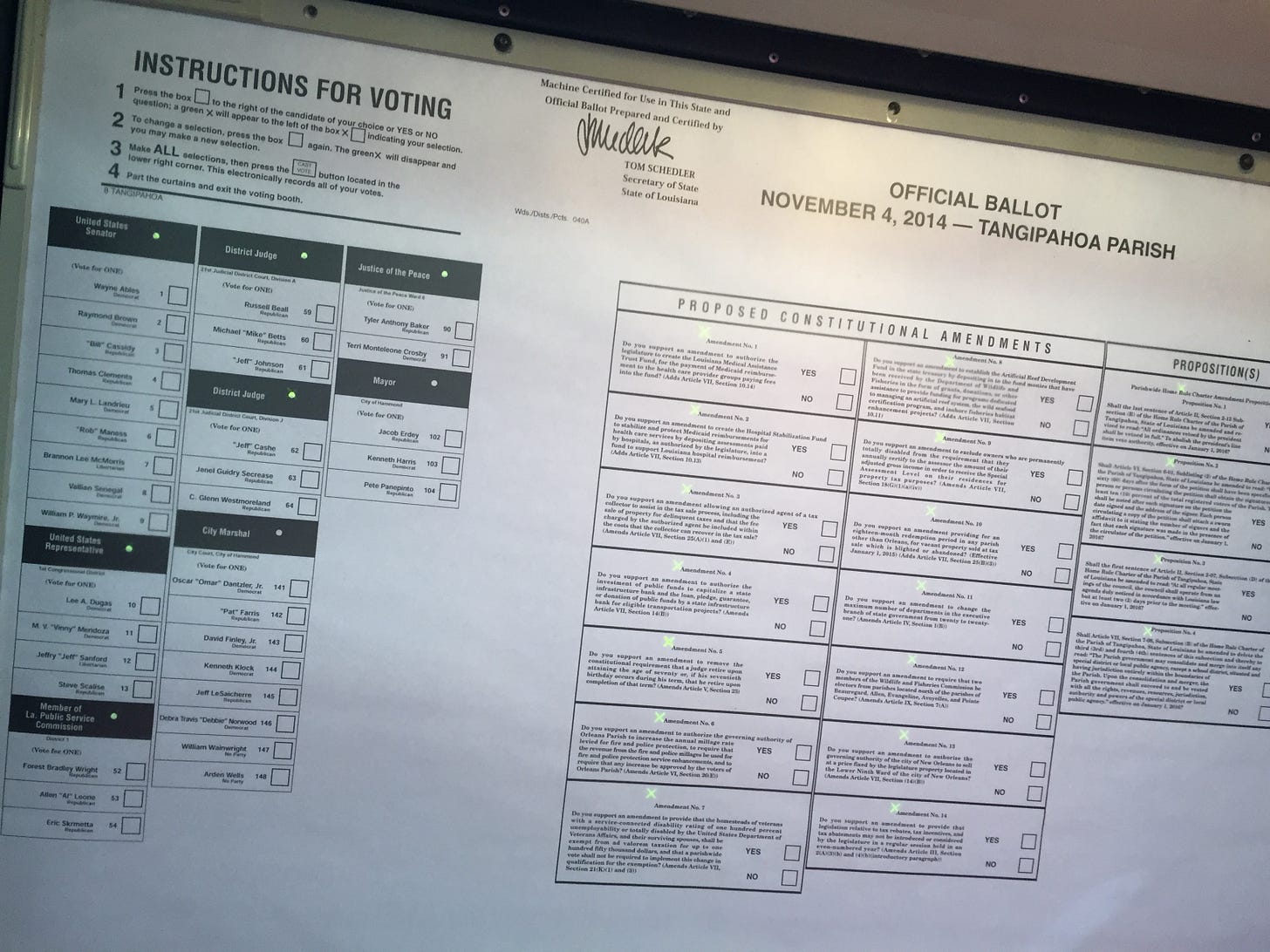Midterm Conventions Are A (Surprisingly) Good Idea
If we’re not going to get rid of the damn thing, we may as well treat it like a real election.

Let me say upfront that I believe we should get rid of the midterm elections. No other major western democracy does a regularly scheduled national election every two years. It’s a big reason we are unable to solve many of our biggest political and policy issues, and it fails to seriously check the presidency, instead it’s a primary reason for the continuous growth of the power of the executive branch.
All that being said, we have the midterms and it’s unlikely we are getting rid of it constitutionally any time soon. Last week, both major parties stumbled into a rare good idea: to explore having a midterm political convention. DNC chair Ken Martin was apparently exploring the idea at the committee’s August meeting, in between doing dumb policy fights that a party national committee has no business dealing with. Someone ran to Donald Trump with the idea, who is now also interested in forcing the RNC to do the same.
Given that the midterm elections are more likely than not going to occur in the middle of the biggest electoral crisis of our lifetimes, with pro-Trump forces likely being deployed in major Democratic-dominated cities and attempting to suppress turnout, it’s actually pretty surprising that both parties seem to have accidentally stumbled upon a good idea. People complain about American voter turnout, but presidential turnout is right in line with much of the democratic world. What we are awful at is turning out in state, local, and midterm elections. Part of that is because we have too many damn elections, but without clear national candidates and party campaigns, the interest level of low-information voters is simply not going to budge.
Of course the party national conventions serve an actual legal function in presidential years, legally nominating the presidential ticket and formally starting the presidential campaign. (Thus my constant response to the complaint that our elections are too long: typical presidential conventions are the first week of September, giving us a two-month campaign, again only slightly longer than most European parliamentary campaigns.) This convention wouldn’t have that same importance, since each state nominates their candidates throughout the spring and summer. But it will function as the primary function of a modern convention anyway: to be a campaign launch, get free media, and frame the argument. I’d go a step farther and argue for debates between the main House leaders and thus Speaker candidates.
There are arguments against this, particularly that it will nationalize local races. Democratic House candidates in red districts are probably not going to look positively on a prime time address by more polarizing national Democratic figures. Incumbent Republican House members, defending against a negative mood in the country, will find it even more difficult to run against Trump if he’s delivering the keynote address. But these races are already nationalized… even reasonably informed voters are not watching House debates on local PBS stations, and everyone that is has already made up their mind who they are voting for. National conventions will at least be honest about what the Congressional races are: parliamentary elections that barring absurd gerrymandering are won and lost based on the national mood.

